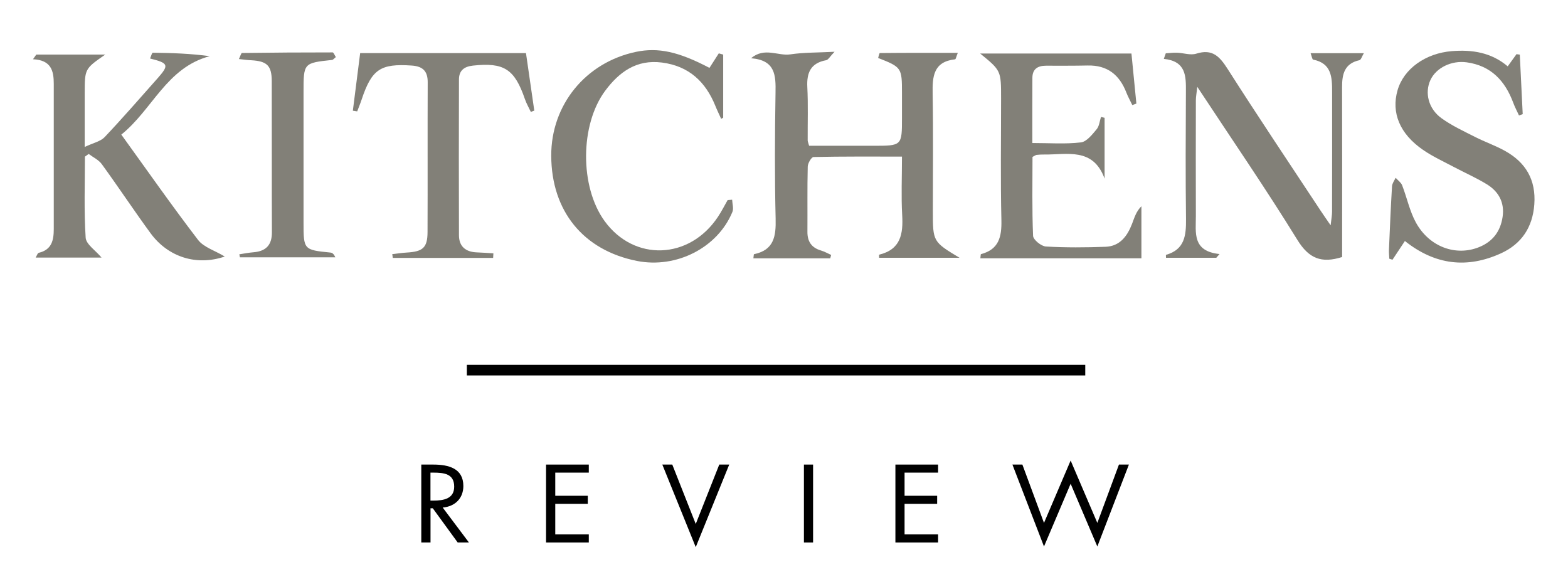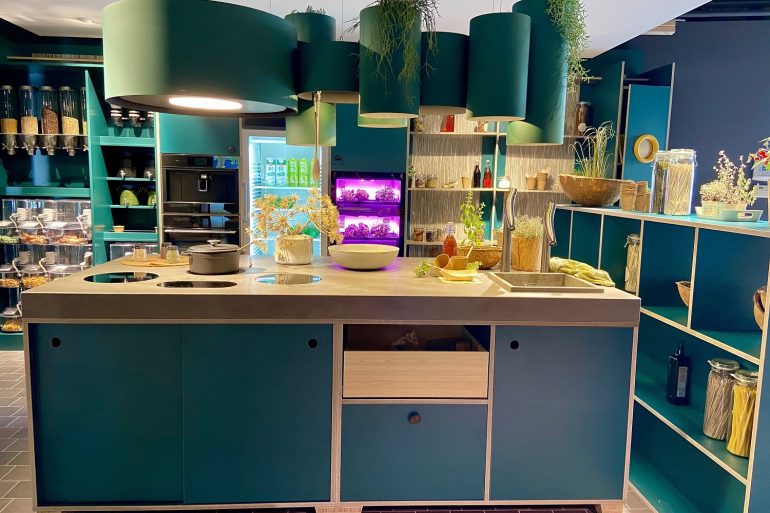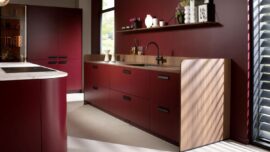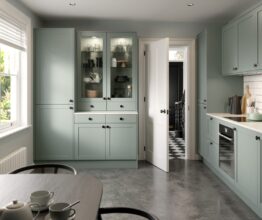Of course, the subject of sustainability is crucial for developers today and the demands they are now placing on the industry supply chain are ever-changing.
According to Keller Kitchens the company is at the forefront of the drive for sustainability in the kitchen industry and has, in fact, been a carbon-neutral manufacturer for over five years. Furthermore, the company signed an agreement with partner, ZLTO, in Spring 2021, to start extracting carbon from the atmosphere that will be reprocessed into the land via local farmers as part of the carbon farming programme.
This initiative will extract 150 tonnes of carbon from the air over a five-year period that will be put to good use in agricultural soils; the 150 tonnes is the equivalent carbon output of a normal kitchen manufacturer making 70,000 kitchens. These initiatives are part of the business ethos that is enshrined in the Keller’s Corporate Social Responsibility programmes; while working within the 17 Sustainable Development Goals of the UN.
Becoming carbon negative is an all-encompassing circular process; from the materials the company acquires from renewable sources, to recycling old kitchens no longer required, and everything in between. This includes, for example, generating proprietary electricity from over 8,000 solar panels on the factory roof, using technology such as no-glue laser edging, water-based lacquering, advanced production processes, recyclable packaging, bio-mass heat/energy generation, greening of the entire fleet of vehicles, planting forests in Bolivia and more.
Keller has also instigated a project which looks at the future of sustainable kitchens. The Circo kitchen concept (pictured tpp) features in the stunning new Inspiration Centre in Bergen op Zoom in the Netherlands. Circo includes all kinds of special details, such as the use of fully circular sheet materials used to construct the kitchen that can simply be melted and reformed into another kitchen or something completely different; or, be fully bio-degradable. Keller, today, facilitates bulk buying and multi-use packaging with the addition of storage and dispensing vessels. Also developed is the waste separation, collection and processing of rainwater – from which drinking water comes from one tap, then water for rinsing from the another one; along with a built-in miniature greenhouse for growing vegetables.
Embracing sustainability already, developers are having to communicate their credentials to homebuyers while still providing beautiful homes which live up to expectations in all the “usual” ways – design, practicality, imagination etc.
To this end, in terms of recent product development, Keller now offers matt lacquered kitchens in 1,950 NCS colours to complement the silk gloss, high gloss and structured lacquer ranges. This is both trendsetting and sustainability-driven as the company only uses water-based systems in the in-house paint plant.
Tim Spann, National Sales Manager UK, explains more, “New builds and contracts lead the way in terms of their drive towards sustainability. This is helped by consumer demand for differentiation and planet-friendly solutions, and building standards of course. The need to strive towards a more balanced world, in terms of sustainability, is a major market driver for the kitchen sector. To this end, we intend to stay ahead of the game by sticking to our ethos. For Keller, 100% of our kitchen sales are manufactured via the most sustainable methods available.”





